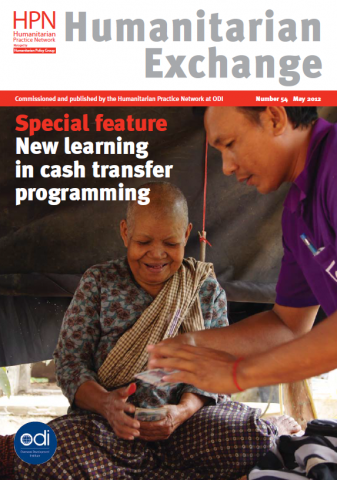Other type of resource
New learning in cash transfer programming


The special feature of this issue of Humanitarian Exchange focuses on new learning in cash transfer programming. While cash is now an accepted tool, and is increasingly being used in humanitarian response, most programmes are small and gaps in analysis and practice remain. In the lead article, Ridsdel identifies three major areas that need to be tackled if cash is to be used more effectively, particularly in large-scale responses: market assessment, response analysis and coordination. This issue also covers i) key components of good response analysis and ii) efforts to institutionalise cash programming.
– HPN 2012.
